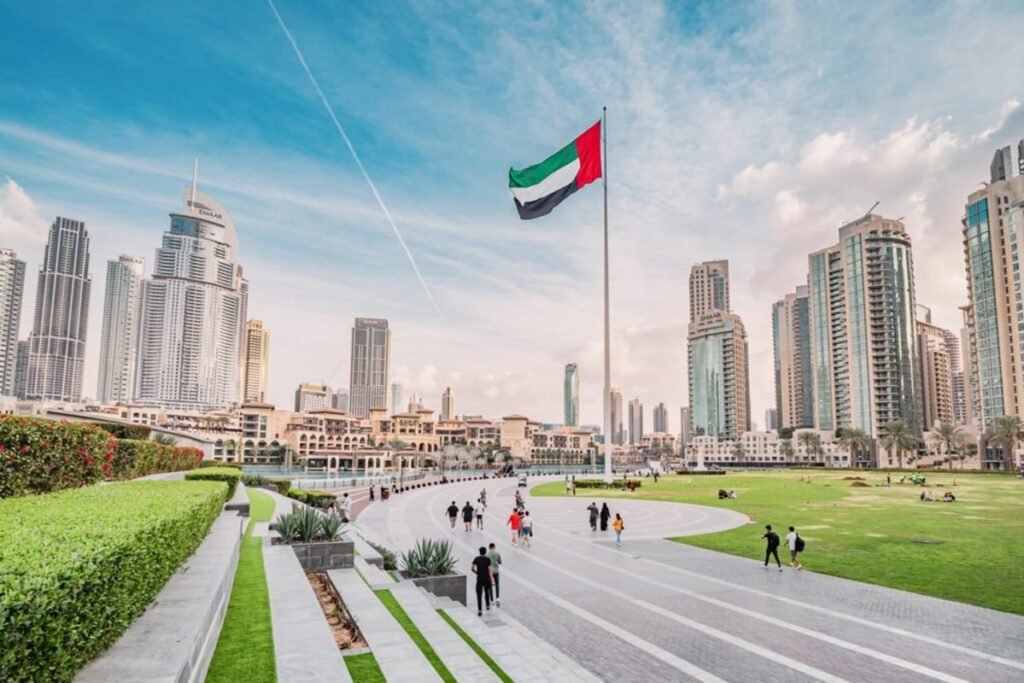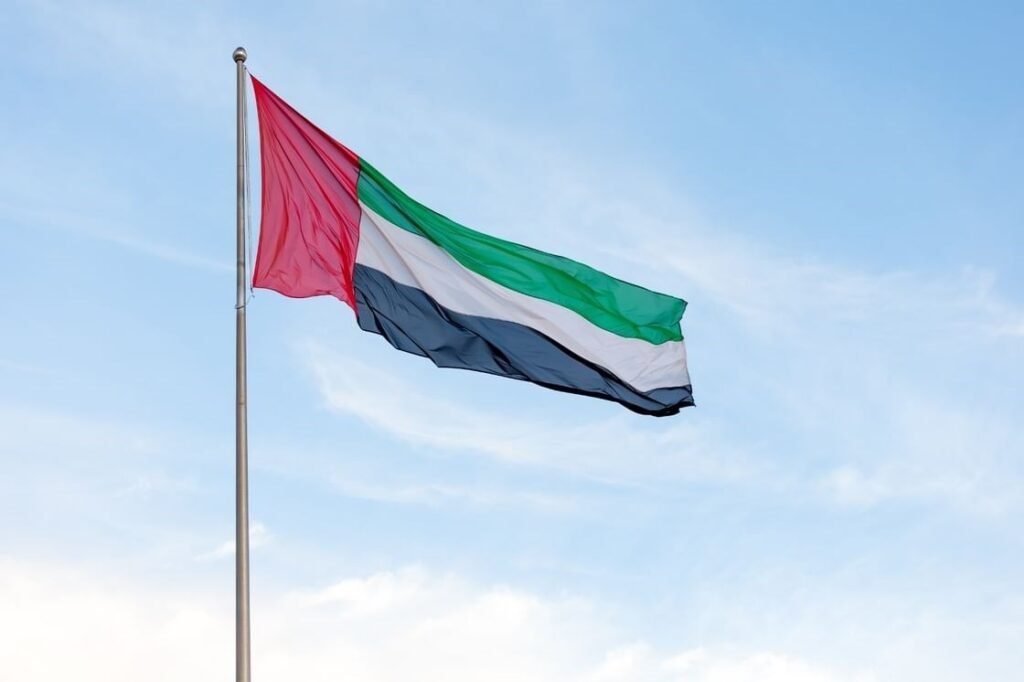The United Arab Emirates (UAE) continues to lead the Arab world in progress and development, earning the top regional position and 15th place globally in the 2023/2024 United Nations Human Development Index (HDI), recently released by the United Nations Development Programme (UNDP). This recognition highlights the country’s achievements in key areas like health, education, income, and overall quality of life.
The report places the UAE ahead of many advanced economies, including countries in Europe and Asia, confirming its growing reputation as a global hub for innovation, economic opportunity, and social well-being.
In this article, we explore what the UAE Human Development Index ranking means, how the country has improved, and what this progress could signal for its future.

What Is the Human Development Index?
Before diving into the numbers, it’s important to understand what the Human Development Index measures.
The HDI is a composite index published annually by the United Nations Development Programme (UNDP). It assesses the long-term progress of countries in three basic areas:

- Life expectancy (a measure of health)
- Education (average and expected years of schooling)
- Gross National Income (GNI) per capita (economic well-being)
By analyzing these dimensions, the index aims to provide a broader picture of development beyond just economic output. The HDI score ranges from 0 to 1, with countries ranked accordingly. A higher score reflects higher human development.
UAE’s Performance at a Glance
According to the 2023/2024 Human Development Report:
- The UAE is ranked 1st in the Arab region.
- It is placed 15th globally out of 193 countries and territories.
- The UAE achieved an HDI score of 0.941, which puts it in the “Very High Human Development” category.
This global ranking positions the UAE just behind countries like Finland, Germany, and Austria, and ahead of other notable economies such as France, Japan, and South Korea.
Key Highlights of UAE’s HDI Progress
Here’s a breakdown of how the UAE performed in the three main pillars of the Human Development Index.
1. Health and Life Expectancy
The UAE has made major strides in public healthcare, preventive services, and universal health access. Life expectancy at birth in the UAE is now estimated at over 80 years, reflecting improvements in medical infrastructure and lifestyle choices.
The country’s investments in public health, especially during and after the COVID-19 pandemic, have earned global recognition. New hospitals, digital healthcare systems, and proactive wellness initiatives continue to boost health outcomes.
2. Education Access and Quality
Education reforms over the past two decades have transformed the UAE’s academic landscape. The country has seen a sharp rise in both school enrolment and university attendance. According to the UNDP report, average years of schooling and expected years of schooling are on par with many developed nations.
Major efforts have been made to modernize curriculums, encourage STEM (science, technology, engineering, and mathematics) education, and promote bilingual education. The UAE also ranks highly in terms of digital literacy among youth and access to e-learning platforms.
3. Income and Economic Growth
Gross National Income (GNI) per capita in the UAE remains one of the highest globally. Economic diversification away from oil has played a major role in sustaining income growth. Sectors like tourism, finance, logistics, and technology are now key contributors to the economy.
Government strategies like “We the UAE 2031” and initiatives under the “Projects of the 50” aim to make the country a global leader in talent, business, and innovation. These efforts have led to more job opportunities, foreign investments, and steady GDP growth.
How the UAE Compares Regionally and Globally
Regionally, the UAE stands out as a clear leader in human development. Here’s how it compares to other Arab nations:
- UAE: 1st in the Arab world, 15th globally
- Saudi Arabia: 2nd in the region, 35th globally
- Qatar: 3rd regionally, 42nd globally
- Bahrain and Kuwait also rank high but trail behind the UAE
Globally, the top 10 HDI rankings are dominated by European and Nordic countries. Norway retained the top spot, followed by Ireland, Switzerland, and Hong Kong. The UAE’s 15th-place ranking puts it ahead of several G7 and OECD countries.

Why the UAE’s HDI Ranking Matters
The Human Development Index is more than just a number—it reflects how well a country is doing in creating a sustainable and inclusive environment for its people.
For the UAE, this ranking:
- Confirms the success of its long-term vision and planning
- Strengthens its position as a regional role model
- Boosts its attractiveness for foreign investors, skilled workers, and international students
- Aligns with national objectives such as the UAE Centennial 2071 plan
In short, the HDI serves as an important benchmark for assessing quality of life, not just economic strength.
UNDP’s Statement on UAE’s Progress
The United Nations Development Programme commended the UAE for its holistic approach to development. Abdullah Nasser Lootah, Chairman of the UAE’s Federal Competitiveness and Statistics Centre, stated:
“The latest HDI ranking reflects the country’s strong performance in building human capital and improving overall quality of life. Our leadership’s commitment to sustainable development and inclusive growth is at the heart of this progress.”
He added that the UAE remains focused on empowering youth, supporting innovation, and promoting social well-being as part of its national development model.
Challenges Ahead Despite High Ranking
While the UAE’s progress is impressive, experts caution that maintaining and improving HDI scores is an ongoing task. Key challenges that the country must continue to address include:
- Ensuring equal access to opportunities across all communities
- Enhancing environmental sustainability amid rapid urbanization
- Maintaining work-life balance and mental well-being
- Supporting continuous upskilling to match future job market needs
As the global economy becomes more digital and interconnected, human development will increasingly rely on adaptability, innovation, and inclusivity.
UAE’s Future Plans for Human Development

To continue its upward path, the UAE has outlined ambitious strategies tied to human capital development. Some of these include:
- UAE Centennial 2071: A 50-year vision focused on education, economy, and governance
- The National Strategy for Wellbeing 2031: Aims to make the UAE the happiest and healthiest society in the world
- Advanced Skills Strategy: Prepares Emiratis and residents for the Fourth Industrial Revolution
- Green Economy and Net Zero 2050 goals: Ensuring that progress is environmentally responsible
Final Thoughts: A Milestone Worth Celebrating
The UAE Human Development Index ranking marks a significant achievement on the world stage. Being 1st in the Arab world and 15th globally is a result of years of policy-making, investment, and innovation aimed at improving people’s lives.
From world-class healthcare and top-tier education to a dynamic economy and inclusive vision, the UAE continues to set a high standard for what progress in the 21st century can look like.
As the nation works toward its long-term vision, the HDI will remain a key guidepost—reflecting not just how wealthy a country is, but how well it uses that wealth to create opportunity, equity, and dignity for all.
Read More: Powering Trust: Dubai Hosts Region’s First AI Governance Summit












